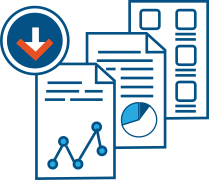GSA Sales Readiness refers to the level of preparedness a contractor has to actively pursue and secure government sales after being awarded a GSA Multiple Award Schedule (MAS) contract. While securing a GSA Schedule is a major milestone, it does not guarantee success in the federal marketplace. Contractors must take proactive steps to market their offerings, build relationships with agencies, understand federal buying behavior, and comply with post-award requirements in order to convert their contract into consistent sales.
Sales readiness is often the dividing line between contractors who hold a dormant GSA contract and those who generate sustainable, long-term federal revenue. It is both a strategic mindset and an operational capability that must be built deliberately after contract award.
Purpose and Strategic Value
The GSA MAS contract is a tool — not a sales pipeline in itself. Once the contract is awarded, the contractor becomes eligible to compete for billions of dollars in federal spending across agencies. However, to take advantage of that opportunity, contractors must transition quickly from contract setup to active business development and marketing.
GSA Sales Readiness ensures that vendors are positioned to:
- Maximize visibility with agency buyers through tools like GSA Advantage!, eBuy, and SAM.gov
- Build a qualified pipeline of opportunities aligned with their awarded SINs
- Effectively respond to RFQs and RFPs under the Schedule
- Differentiate their offerings from other contractors in a crowded marketplace
- Maintain compliance with GSA’s reporting, catalog, and pricing obligations
Without an intentional focus on sales readiness, even well-qualified vendors may find themselves underperforming or falling below GSA’s minimum sales threshold.
Key Elements of GSA Sales Readiness
A contractor that is truly sales-ready understands both the operational and strategic dimensions of federal selling. This includes not only setting up systems and processes, but also aligning the company’s internal resources to target the right customers, craft compelling messaging, and support government buyers throughout the procurement process.
Core elements of GSA Sales Readiness include:
- Catalog visibility and optimization — ensuring your product or service listings on GSA Advantage! are accurate, compliant, well-described, and easy to find through keywords and filters
- Marketing and outreach strategy — developing an agency engagement plan that includes emails, capability briefings, and participation in federal events or matchmaking sessions
- eBuy engagement — regularly monitoring and responding to RFQs and Requests for Information (RFIs) issued under your awarded SINs
- Pipeline and opportunity tracking — using tools like SAM.gov, USASpending, and Acquisition Gateway to identify upcoming solicitations and expiring contracts
- Internal sales training — educating your team on how to quote using GSA pricing, reference the contract properly, and follow federal sales protocols
- Post-award compliance integration — aligning the sales process with quarterly reporting, TAA compliance, and contract modification procedures
GSA sales readiness also means having a clear value proposition and being able to communicate how your company solves government problems — not just what you sell.
Steps to Become GSA Sales Ready
Becoming sales-ready requires more than just intention — it involves a specific set of preparatory actions taken shortly after the GSA award, and refined continuously throughout the life of the contract.
Steps contractors can take to achieve GSA Sales Readiness include:
- Upload and maintain an accurate catalog on GSA Advantage! using SIP or the FASt Catalog Platform, including up-to-date product descriptions, pricing, and images
- Develop a targeted list of agencies that commonly purchase the products or services under your SINs, using tools like GSA eLibrary and FPDS
- Create and distribute a government-focused capability statement that includes your contract number, SINs, UEI, and contact information for ordering
- Set up internal processes to monitor eBuy, SAM.gov, and GSA Interact for opportunities and updates
- Train your business development and sales teams to understand the GSA buying process, including the use of contract numbers in quotes and communication
- Engage with GSA’s Office of Small Business Utilization (OSBU) and attend relevant federal networking events to build brand recognition
- Review quarterly sales and Industrial Funding Fee (IFF) reporting deadlines and create compliance calendars to ensure contract integrity
A company that incorporates these actions into its post-award roadmap is much more likely to convert its Schedule contract into steady agency demand.
Conclusion
GSA Sales Readiness is a critical phase that bridges the gap between contract award and real revenue. While the GSA Schedule provides a powerful contracting vehicle, success depends on a contractor’s ability to market, sell, and deliver within the federal procurement system. Contractors that take the time to prepare, train, and build a targeted outreach strategy are well positioned to grow their government business, meet GSA’s minimum sales requirements, and establish themselves as trusted suppliers across federal agencies.


